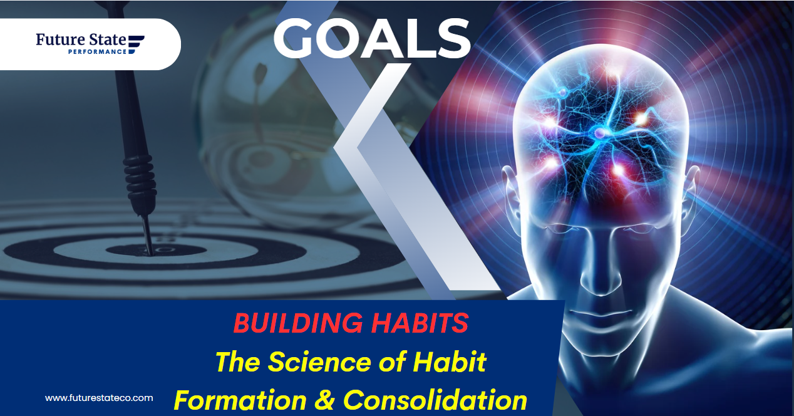Goals
Science of habit formation and consolidation
By Shay Lynch
July 13, 2024
Starting new habits requires some background knowledge on how the brain works. Understanding the cognitive and neurological foundations can significantly enhance the success rate of forming and maintaining new habits.
Starting the Habit
New habits DISRUPT the brain
So when you begin a new habit, it’s crucial to start with purpose. I’ve talk a lot previously about this, so I won’t be going into detail here, however don’t underestimate the importance of purpose..
System 1 vs. System 2 Thinking: According to Daniel Kahneman, our brain operates in two systems. System 1 is fast, automatic, and often subconscious. System 2 is slower, more deliberate, and conscious. Forming new habits often requires engaging System 2 to consciously practice and repeat the new behaviour until it becomes automatic, transitioning to System 1.
BJ Fogg’s concept of Tiny Habits can be instrumental, along with James Clear principle of making it as frictionless as possible. The idea is to make the habit so small and as easy as possible so it makes it hard to fail.
Reinforcing the Habit
Reinforcement is key to habit formation. Charles Duhigg’s habit loop explains the process with three components:
- Cue: The trigger that initiates the habit.
- Routine: The behaviour itself.
- Reward: The benefit you gain from doing the habit.
Rewards play a significant role in reinforcing habits back by the structure of the brain, including the
– Basal ganglia – Develops the process
– Prefrontal cortex – Supports decision making to do it
– Hippocampus – Creates strong memories and triggers
All working synergistically supported by key neurotransmitters to continually reinforce the habit
- Dopamine: The doing hormone
- Glutamate: Involved in synaptic plasticity and cognitive functions
- Serotonin: Offers sense of fulfilment when you’ve executed your habit
- Oxytocin: When you reward and celebrate with friends
These neurotransmitters influence your brain’s synaptic plasticity – the ability to strengthen neuron connections. This plasticity is vital for forming long-term habits.
Consolidating the Habit
To consolidate a habit, the process of Long-Term Potentiation (LTP) is essential. LTP is the ability to strengthen synapses based on repetitive stimulation. It’s the neural basis for learning and memory.
This combined with leveraging the key structures and makes neural pathways involved become stronger, making the behaviour more automatic over time.
________________________________________
⏩ Join the Conversation – How do you recognise and celebrate your milestones? 🔔 Hit the notification icon to get notified of new content 🔁 If this resonates, feel free to repost
________________________________________
#futurestateacademy #systemsthinking #Neuroscience #BrainScience #PersonalDevelopment #ProfessionalGrowth #Habits #SuccessMindset #PositiveChange #BehavioralScience #Motivation #Productivity #SelfImprovement #MindsetMatters #ContinuousImprovement #Wellbeing


